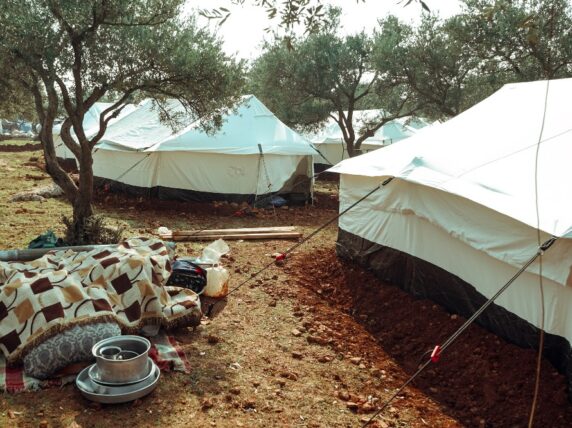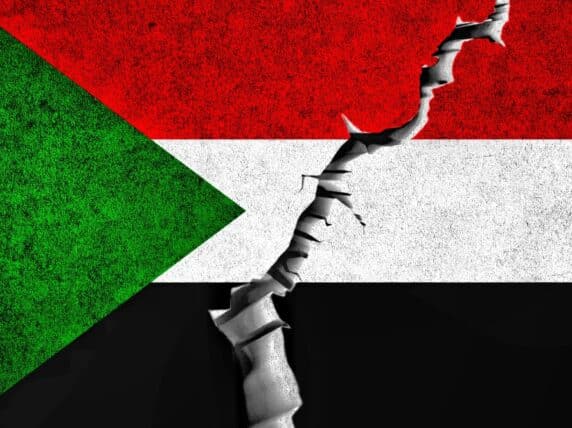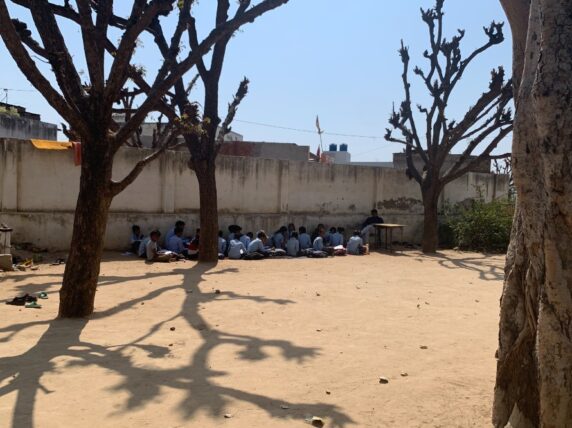Disabled and displaced: The additional challenges faced by disabled people in the Sudan crisis
Elkhansa is a young disability rights activist in Sudan. Before the recent conflict began, she lived in the country’s capital, Khartoum, and worked at the ADD International’s Sudan office.
Earlier this year, she shared her experience of navigating the crisis as a person with a disability.
Since the fighting began, Elkhansa has faced inconceivable challenges, made more complicated by her disability, the reduced accessibility caused by the conflict situation, and discrimination from the local community where she is staying away from the fighting.
She explains how the conflict is affecting disabled people in Sudan:
People with disabilities will be more affected by the war than others. People with physical disabilities or users of wheelchairs will not be able to run if explosions occur, and people with hearing impairments will not be able to hear those with explosions or hearing gunshots if they are next to them, so they will not know what is happening, and people with visual disabilities will not see what is happening with them.
They will not see if someone is attacking them, or if someone wants to loot them, and if explosions occur next to them, they will not know the way out or how to escape. It is very difficult to move outside the house, even to escape to another state other than the one in which the clashes are taking place, and it is difficult for us to reach food and health needs.
At this time, Elkhansa has managed to move away from the centre of the conflict and find somewhere to stay. However, this has brought fresh difficulties for her.
The first challenge is that I suffer from a lack of understanding or acceptance by others in the rural area of my disability. Secondly, the place is not prepared for my special needs and the things that make it easier for me to support myself or implement my desires and my very personal needs.
I cannot help myself in such circumstances, and even the health support allocated to me as a person with a disability are not available due to the lack of awareness of my type of disability in this area.
Subscribe to our newsletter
Our weekly email newsletter, Network News, is an indispensable weekly digest of the latest updates on funding, jobs, resources, news and learning opportunities in the international development sector.
Get Network NewsElkhansa is a powerful and impactful activist. Before this conflict began, she was playing a key role in advocating for disability justice. She was working to support the disability rights movement in her country by mapping and connecting different organisations of people with disabilities, and supporting them in advocacy and awareness raising campaigns. She is also a vocal digital activist sharing calls for social justice, disability rights and gender equality online. But she says this situation is threatening her belief in being able to make lasting change. Ableism is everywhere but felt most keenly in a crisis situation. It’s vital we support the disability rights movement in Sudan at this time.
In the past few months, Elkhansa has been visiting disabled people in displaced people camps.
I am meeting displaced young women with disabilities to understand their current situation and have sourced some phones to communicate with them. It’s important to remember that all people with disabilities have their own needs, in terms of health, psychology and environment. It’s important we take these into account.
Although the media have slowed their reporting, this crisis continues. It’s important to keep talking about Sudan, and working in solidarity with those affected by the conflict.
ADD has been working in Sudan for 33 years, as a trusted partner and ally of Sudan’s disability rights organisations. They work with a large network of groups supporting people with various types of disabilities, especially specific disability-led groups and organisations run by women. You can find out more about ADD International’s Sudan Crisis Appeal on their website. The money raised through ADD’s Sudan Crisis Appeal is being given to grassroots organisations of disabled people in four regions of Sudan as grants to fund their response work.




